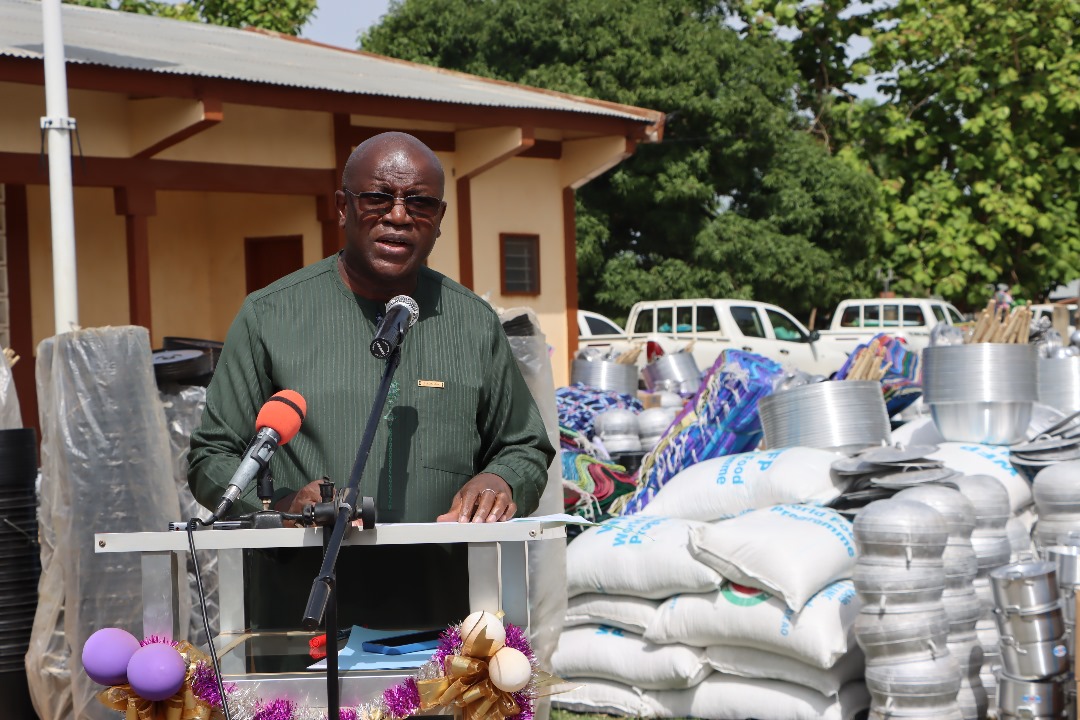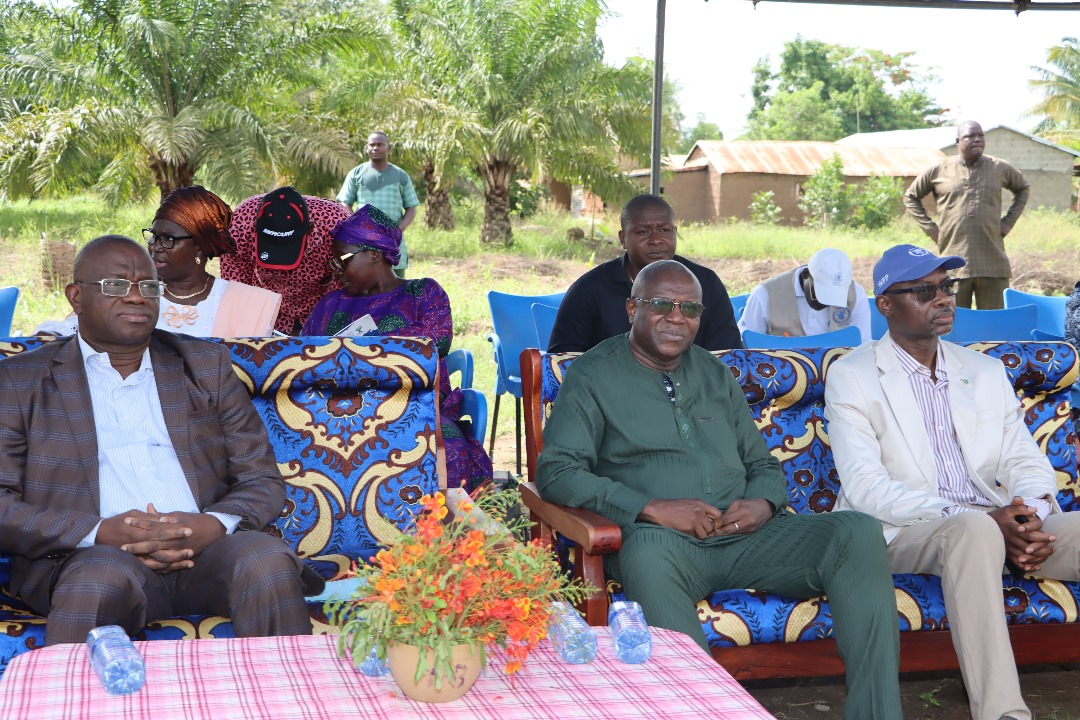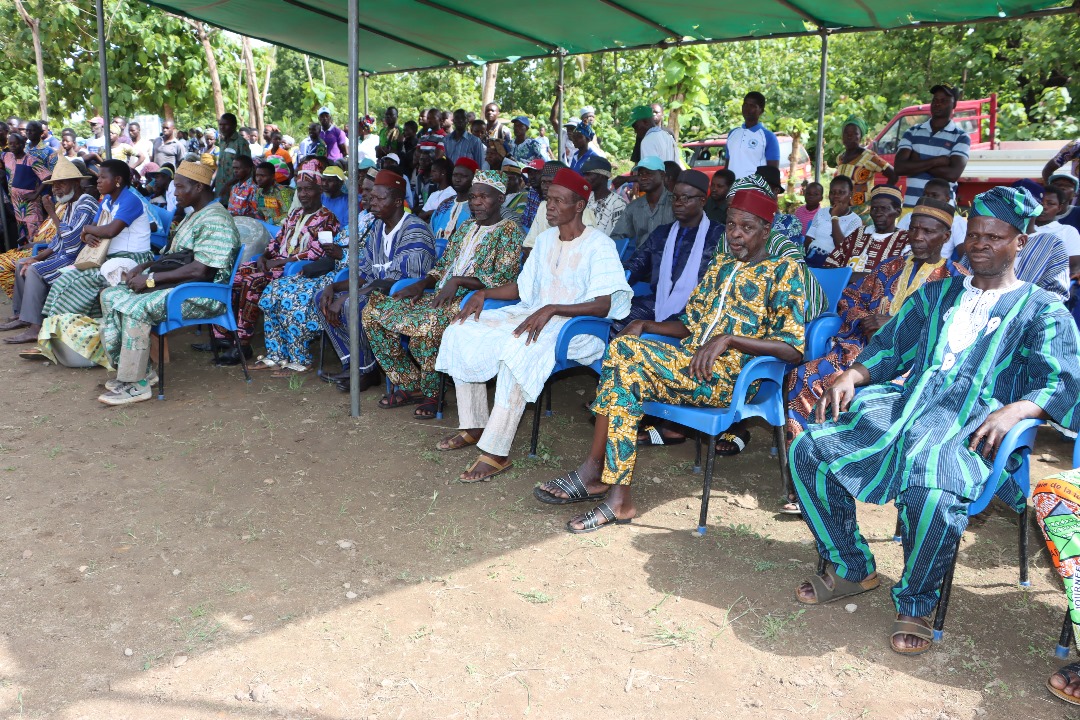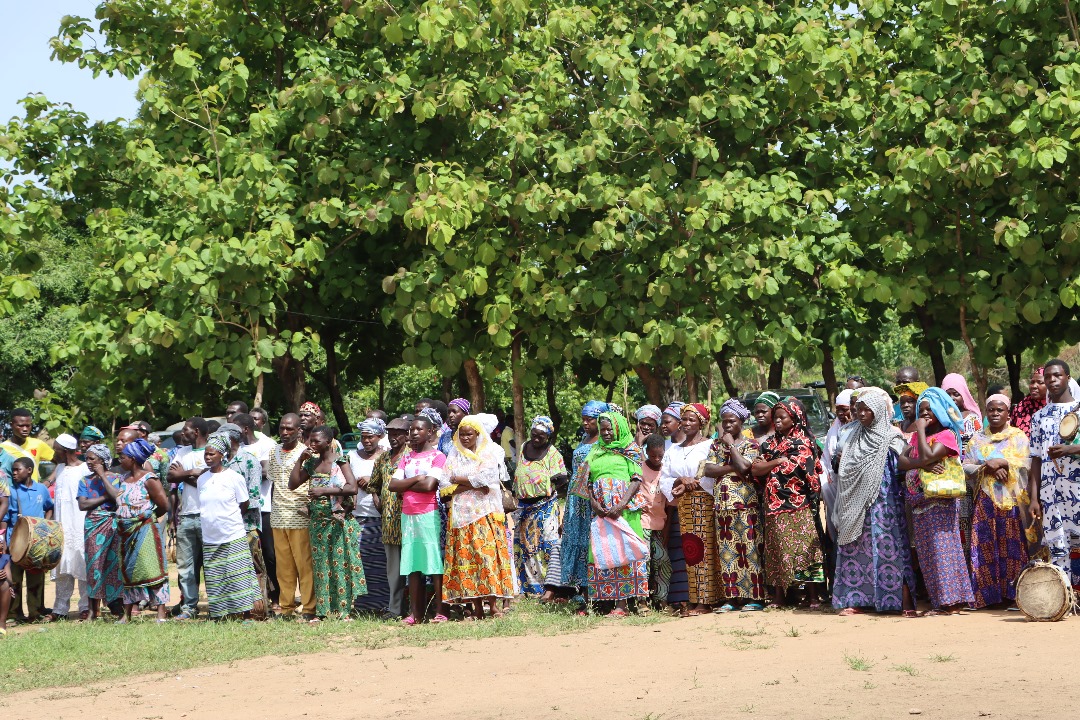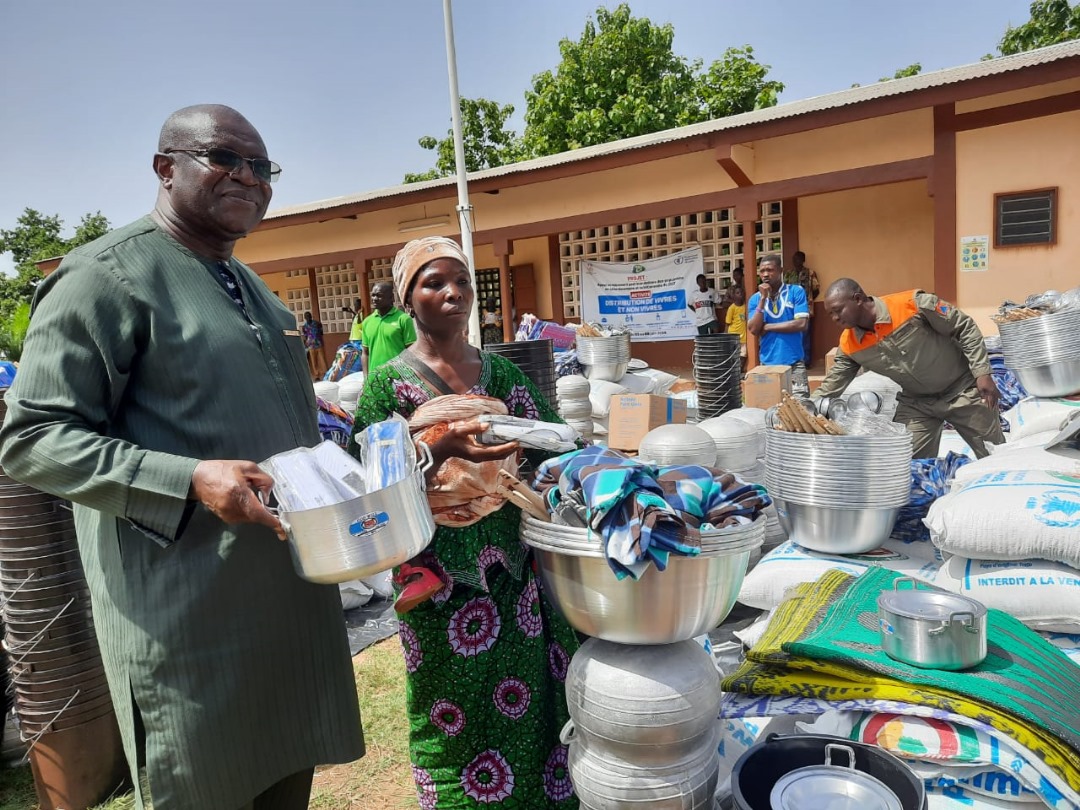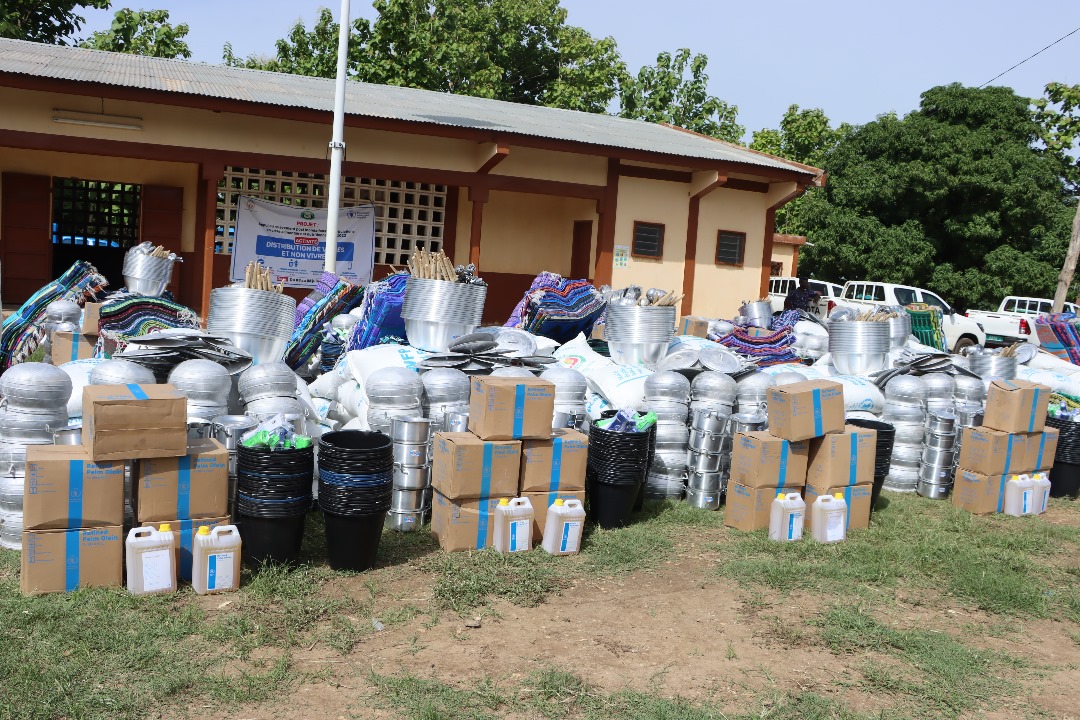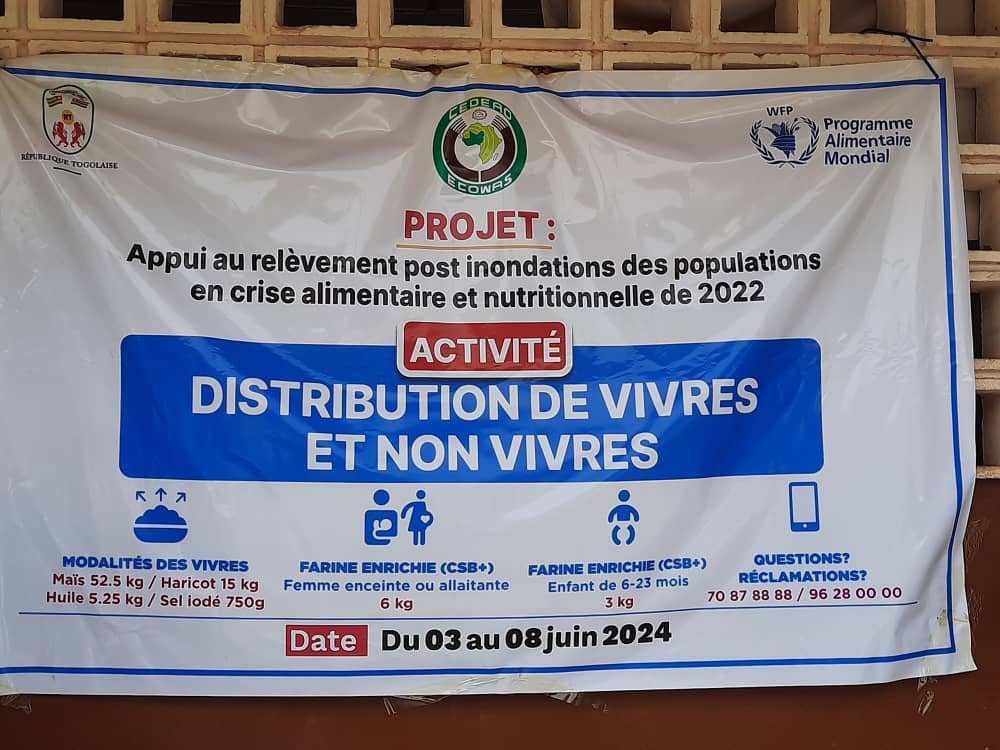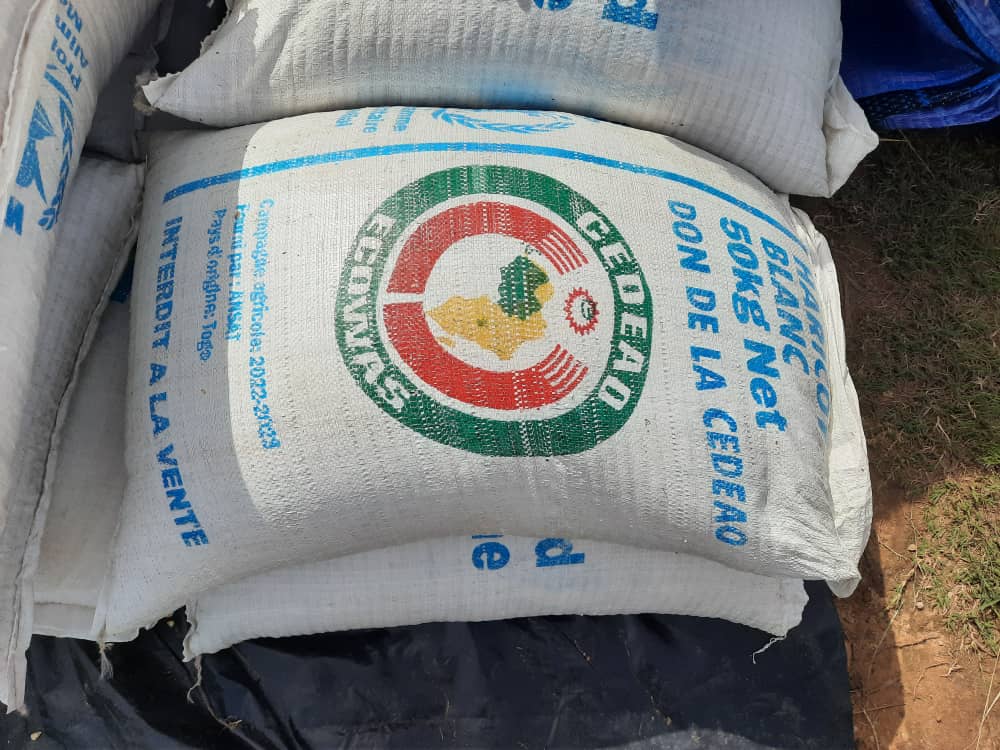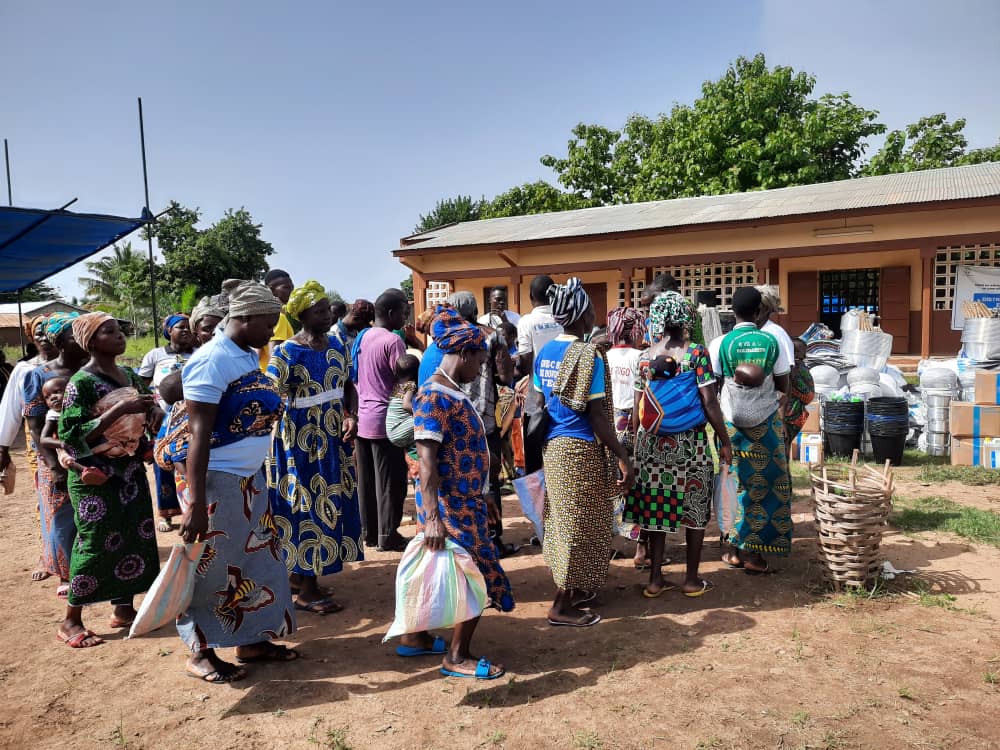Official launch of ECOWAS humanitarian assistance to flood victims in Togo
13 Jun, 2024On June 3, 2024, the ECOWAS Resident Representative in Togo took part, on behalf of the President of the Commission, in the official launch of ECOWAS humanitarian assistance to victims of the 2022 floods in Togo under the Mechanism of Humanitarian Response (MEDH) of ECOWAS adopted by the Member States in 2012. It was in Titigbé in the prefecture of Sotouboua, Central Region of Togo, under the sponsorship of the Minister of Security and Civil Protection.
Heavy and devastating rains recorded in West Africa in 2022 have had significant consequences on human lives, property, agricultural land and livestock, killing and injuring thousands of people and displacing millions. Togo was one of the member states most affected by these floods alongside Gambia, Liberia and Sierra Leone. In accordance with its mandate, and in order to mitigate the effects of these catastrophic floods, ECOWAS has decided to provide humanitarian aid to Togo through its Humanitarian Relief Fund. The intervention aims to (i) rehabilitate basic socio-collective infrastructure in order to restore essential services, (ii) strengthen the capacities of citizens and communities to better cope with future crises, (iii) help with the reconstitution of the livelihoods of affected households while facilitating the return to normal life and strengthening the resilience of communities.
The launching ceremony was attended by the Representative of the Minister/Secretary General of the Ministry of Security and Civil Protection, the Resident Representative of ECOWAS in Togo, and the Resident Representative of the World Food Program (WFP) in Togo. Also present were the Representative of the Minister of Social Action, the Representative of the ECOWAS National Office, the Director General of the National Civil Protection Agency, the political and administrative authorities of the Sotouboua region (Prefect, mayors, deputy mayors, cantonal chiefs, religious and traditional authorities), as well as the population of Titigbé.
In his speech, His Excellency Mr. Barros Bacar BANJAI affirmed that following the floods of 2022, the ECOWAS Commission through the Department of Human Development and Social Affairs decided to provide financial support to Member States for actions of recovery. It is in this context that Togo has included humanitarian assistance among its activities, following rapid assessments of needs, damage and post-disaster losses which revealed 45,136 victims including 24,889 people affected by the floods. « This support that Togo obtained from ECOWAS through the National Civil Protection Agency, was done as part of the implementation of the project « Support for post-flood recovery 2022 in ECOWAS member states » by planning humanitarian assistance for the benefit of flood victims, vulnerable households experiencing food and nutritional insecurity for a total amount of one million seventy-three thousand seven hundred and seventy-eight (1,073,778) US Dollars, or six hundred and fifty-one million, seven hundred and six thousand, eight hundred and fifty-five (651,706,855) CFA francs. The project also provides humanitarian assistance in food and non-food items to two thousand seven hundred and seventeen (2717) vulnerable households in nineteen (19) prefectures, with a total value of one hundred and fifty-six million (156,000 000) of CFA francs. The choice of Titigbé in the Municipality of Sotouboua for this launching ceremony can be explained by the fact that it is the distribution site which brings together the largest number of beneficiaries in Togo,» he will say in substance before expressing the deep gratitude of ECOWAS to all those who contributed to making this assistance possible: government agencies, non-governmental organizations, the World Food Program (WFP) in Togo, international partners, and to each citizen who provided his support. Finally, he appealed to all stakeholders to redouble their efforts to combat climate change which is exacerbating the frequency and intensity of extreme weather phenomena in the sub-region. « It is our collective responsibility to take measures to mitigate these impacts and protect our environment, » he said. He assured the audience of the will and unwavering commitment of ECOWAS to support the government of Togo and the victims in this difficult period, before concluding that « together, we can build a safer and more secure future more resilient for our children and future generations».
As for the Resident Representative of the WFP, he expressed the recognition and gratitude of his Institution to ECOWAS, for having accepted the choice of the WFP through the Togolese Government regarding the implementation of this project, which undoubtedly marks the beginning of a great and remarkable partnership at the service of the populations.
The beneficiaries, speaking through the voice of Madam Mayor of Sotouboua 2, expressed their deep gratitude to ECOWAS and all partners. « By this strong act, ECOWAS once again demonstrates the interest given to the integration of peoples through the improvement of living conditions and the well-being of the citizens of the Community. It is thus part of the Government’s outpouring of solidarity for the benefit of populations affected by disasters and natural disasters. Thank you for all this important humanitarian support which will help relieve the pain of the affected people with a view to recovering their means of livelihood and filling the void, especially at the start of this new rainy season. »
Taking the floor, the Representative of the Minister of Security and Civil Protection specified that this humanitarian assistance operation responds to the national response mechanism to crisis situations linked to extreme hydro-meteorological events. « I would like to express my deep gratitude to the ECOWAS Commission which spares no effort to support the government in the implementation of its national civil protection policy. I would like to reassure you of our commitment to carrying out this mission in compliance with humanitarian principles for the well-being of communities, » he recalled, delivering in this case the message of thanks from the Togolese Minister of Security, not without having urged the beneficiaries to make good use of the food and non-food items offered to them.
The launch ceremony closed with the symbolic delivery of kits to a few victims. In total, more than 205 tons of food composed of corn, beans, fortified vegetable oil, iodized salt and specialized nutritious flour intended for those most vulnerable to malnutrition, particularly children under 2 years old, pregnant women and breastfeeding women. Non-food items include plastic mats, buckets, basins, pots, drinking water, medicines, clothing and temporary shelter.




